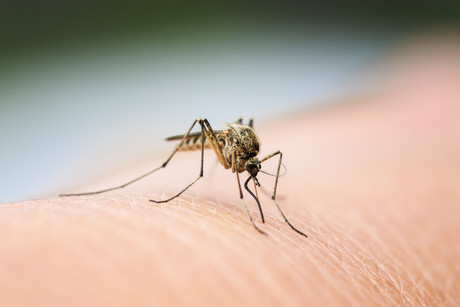Antimalarial drug boosted with chemo medicines

Scientists from The University of Melbourne have found a way to boost the efficacy of the world’s most powerful antimalarial drug with the help of chemotherapy medicines, in a breakthrough that may hold the key to overcoming antimalarial drug resistance.
Malaria claims the lives of about 450,000 people worldwide every year. Resistance to antimalarial drug artemisinin has already developed in Southeast Asia, with fears it will soon reach Africa.
Collaborating with Japanese pharmaceutical company Takeda, the Melbourne scientists discovered that artemisinin works through a ‘double whammy’ attack on the deadly malaria parasite. Writing in the journal Nature Communications, they explained how the drug damages proteins in malaria parasites and clogs the parasite’s waste disposal system, known as the proteasome.
“The double whammy effect means that combining artemisinin with an anticancer drug that also targets the proteasome complements the activity of artemisinin, and can restore activity against artemisinin-resistant parasites,” said University of Melbourne researcher Leann Tilley.
“The parasite’s proteasome is like a shredder that chews up damaged or used-up proteins. Treating malaria parasites with artemisinin generates a lot of damaged proteins. Artemisinin and proteasome inhibitors thus can work together to jam the recycling system.”
Blockage of the proteasome causes an accumulation of proteins that are marked with a ‘kiss of death’ modification. When these damaged proteins build up, they stress the parasite and soon lead to cell death.
Professor Tilley and her team are now working with Takeda and Swiss-based non-profit research foundation Medicines for Malaria Venture to identify parasite-specific proteasome inhibitors that could be advanced to clinical trials. The University of Melbourne and Medicines for Malaria Venture have received approximately $868,600 from the Global Health Innovative Technology Fund to conduct this research, with Takeda contributing scientific knowledge and technical support.
“We are currently undertaking medicinal chemistry work to create novel analogs of human proteasome inhibitors that specifically inhibit the parasite proteasome,” Professor Tilley said.
“We want a compound that can be administered orally and will last a long time in the bloodstream. If a suitable compound can be found, human trials could happen very soon.”
argenx and Monash University partner against autoimmune diseases
To advance a pioneering molecule for autoimmune diseases, global immunology company argenx has...
Archer completes potassium sensing alpha prototype
Quantum technology company Archer Materials Limited has developed an early Biochip prototype...
Farm animals and aquaculture cryopreservation partnership announced
Vitrafy Life Sciences Limited has announced that it has entered a 12-month exclusive agreement...



